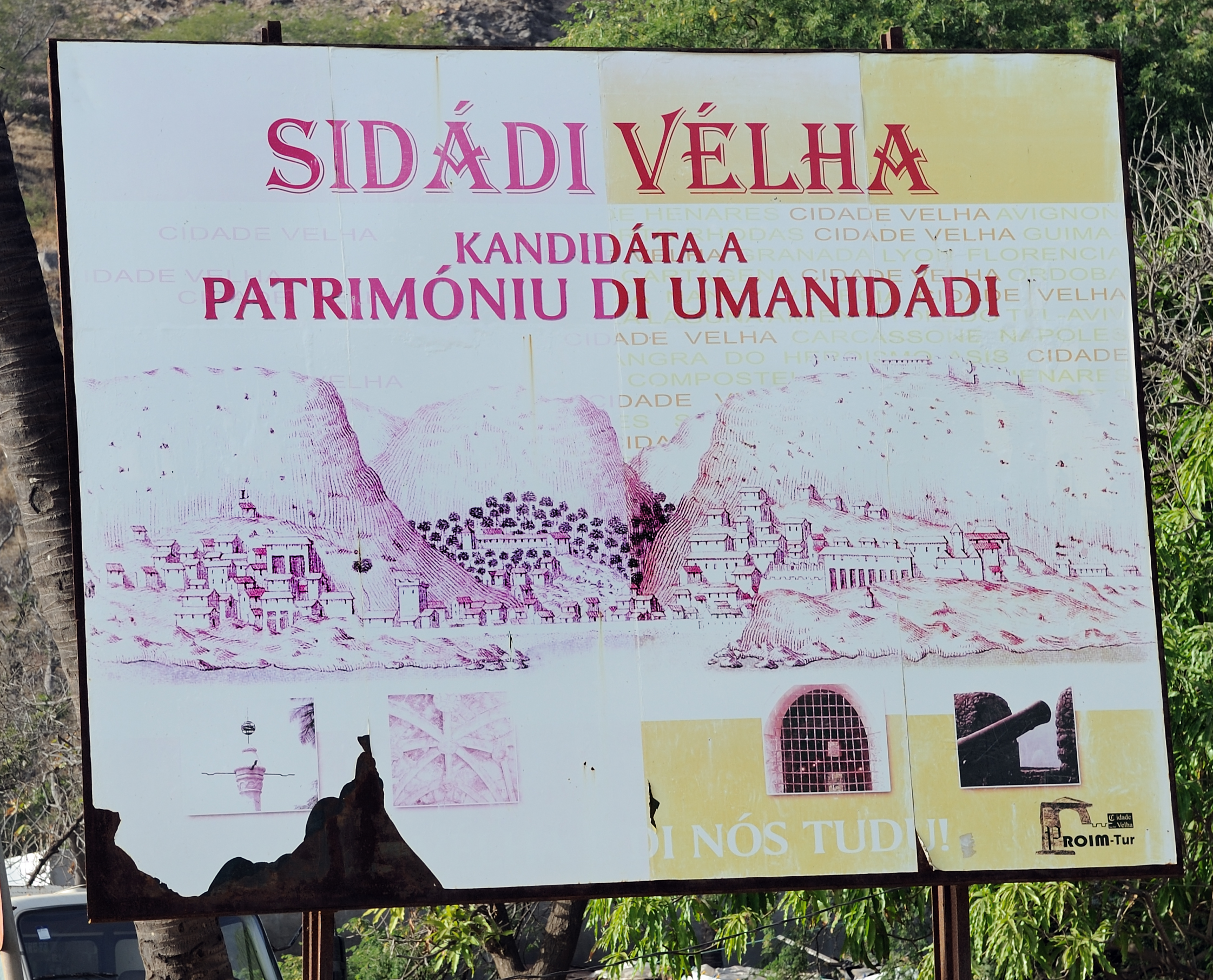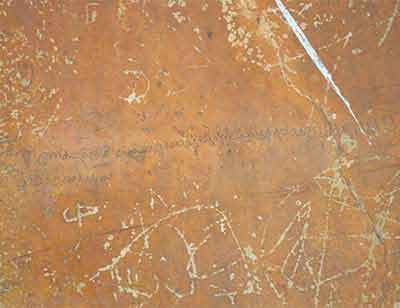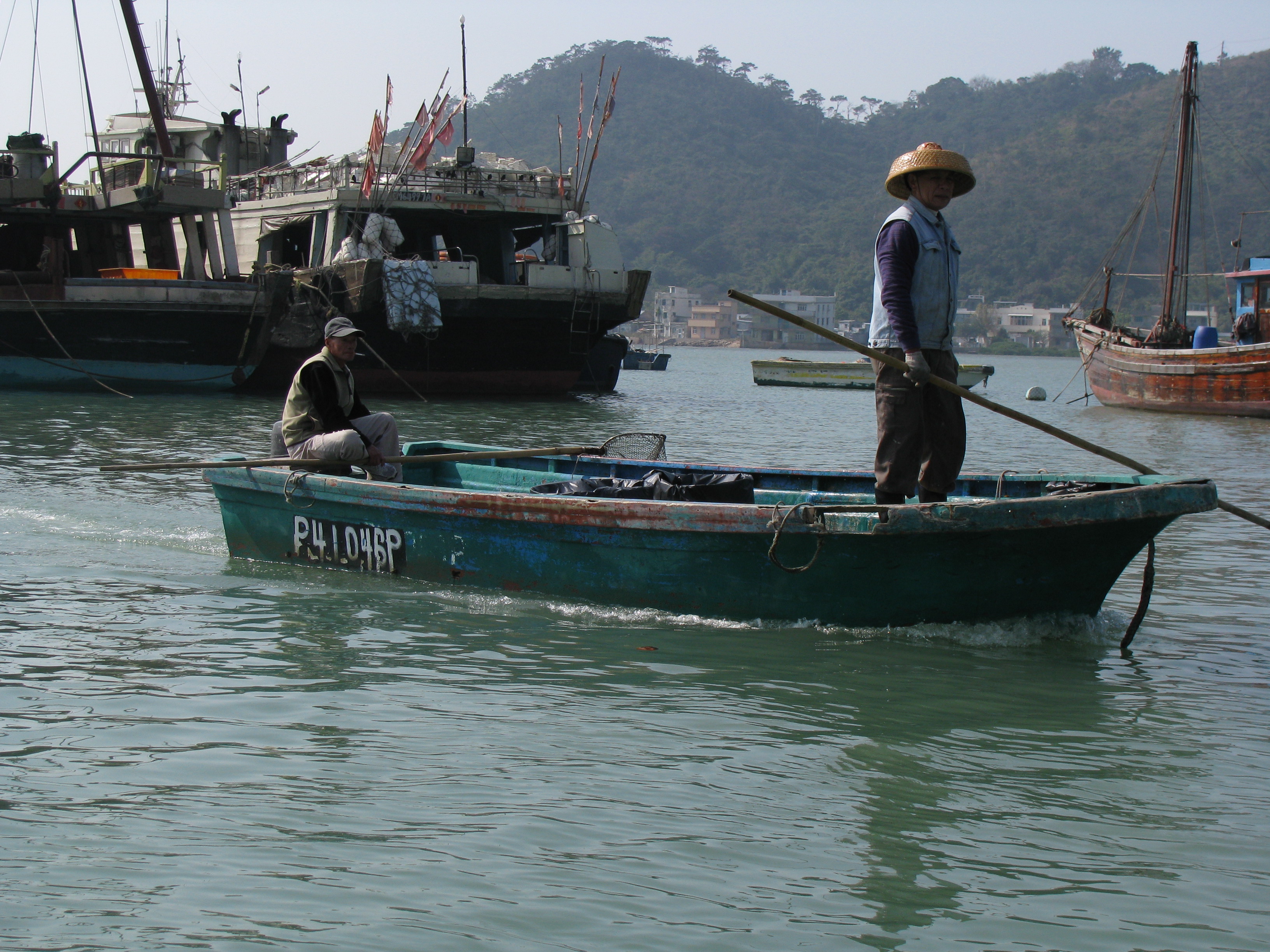|
Patuá
Macanese patois (endonym: ) is a Portuguese-based creole language with a substrate from Cantonese, Malay and Sinhala, which was originally spoken by the Macanese community of the Portuguese colony of Macau. It is now spoken by a few families in Macau and in the Macanese diaspora. UNESCO ''Atlas of the World's Languages in Danger'' classifies Patua as a "Critically Endangered" and places the number of speakers at 50 . Name The language is also called by its speakers as ("Christian speech of Macau") and has been nicknamed ("Sweet Language of Macau") and ("sweet speech") by poets. In Chinese it is called "" ("Macanese native-born native language"). In Portuguese, it is called , ("pure Macanese"), or (from French ). The terms "" ("Macanese speak") and "" ("Macanese native-born native language") in Chinese (Cantonese), the lingua franca of Macau, refers to any language of Macau (such as the Tanka dialect of Yue Chinese, Standard Cantonese with Macau unique phrases and ... [...More Info...] [...Related Items...] OR: [Wikipedia] [Google] [Baidu] |
Portuguese-based Creole Languages
Portuguese creoles () are creole languages which have Portuguese as their substantial lexifier. The most widely-spoken creoles influenced by Portuguese are Cape Verdean Creole, Guinea-Bissau Creole and Papiamento. Origins Portuguese overseas exploration in the 15th and 16th centuries led to the establishment of a Portuguese Empire with trading posts, forts and colonies in Africa, Asia and the Americas. Contact between the Portuguese language and native languages gave rise to many Portuguese-based pidgins, used as linguas francas throughout the Portuguese sphere of influence. In time, many of these pidgins were nativized, becoming new stable creole languages. As is the rule in most creoles, the lexicon of these languages can be traced to the parent languages, usually with predominance of Portuguese; These creoles are (or were) spoken mostly by communities of descendants of Portuguese, natives, and sometimes other peoples from the Portuguese colonial empire. Until recent ... [...More Info...] [...Related Items...] OR: [Wikipedia] [Google] [Baidu] |
Patois
''Patois'' (, same or ) is speech or language that is considered nonstandard, although the term is not formally defined in linguistics. As such, ''patois'' can refer to pidgins, creoles, dialects or vernaculars, but not commonly to jargon or slang, which are vocabulary-based forms of cant. In colloquial usage of the term, especially in France, class distinctions are implied by the very meaning of the term, since in French, ''patois'' refers to any sociolect associated with uneducated rural classes, in contrast with the dominant prestige language ( Standard French) spoken by the middle and high classes of cities or as used in literature and formal settings (the " acrolect"). Sociolinguistics is the discipline that studies the relationship between these language varieties, how they relate to the dominant culture and, in the case of France, to national language policy. Etymology The term ''patois'' comes from Old French (originally meaning ), possibly from the verb , from ... [...More Info...] [...Related Items...] OR: [Wikipedia] [Google] [Baidu] |
Portuguese Language
Portuguese ( or ) is a Western Romance language of the Indo-European language family originating from the Iberian Peninsula of Europe. It is the official language of Angola, Brazil, Cape Verde, Guinea-Bissau, Mozambique, Portugal and São Tomé and Príncipe, and has co-official language status in East Timor, Equatorial Guinea and Macau. Portuguese-speaking people or nations are known as Lusophone (). As the result of expansion during colonial times, a cultural presence of Portuguese speakers is also found around the world. Portuguese is part of the Iberian Romance languages, Ibero-Romance group that evolved from several dialects of Vulgar Latin in the medieval Kingdom of Galicia and the County of Portugal, and has kept some Gallaecian language, Celtic phonology. With approximately 250 million native speakers and 17 million second language speakers, Portuguese has approximately 267 million total speakers. It is usually listed as the List of languages by number of native speaker ... [...More Info...] [...Related Items...] OR: [Wikipedia] [Google] [Baidu] |
Macau
Macau or Macao is a special administrative regions of China, special administrative region of the People's Republic of China (PRC). With a population of about people and a land area of , it is the most List of countries and dependencies by population density, densely populated region in the world. Formerly a Portuguese Empire, Portuguese colony, the territory of Portuguese Macau was first leased to Portugal by the Ming dynasty as a trading post in 1557. Portugal paid an annual rent and administered the territory under Chinese sovereignty until 1887, when Portugal gained perpetual colonial rights with the signing of the Sino-Portuguese Treaty of Peking. The colony remained under Portuguese rule until the 1999 handover to China. Macau is a Special administrative regions of China, special administrative region of China, which maintains separate governing and economic systems from those of mainland China under the principle of "one country, two systems".. The unique blend of Port ... [...More Info...] [...Related Items...] OR: [Wikipedia] [Google] [Baidu] |
Macau & The Question Of Chineseness
Macau or Macao is a special administrative region of the People's Republic of China (PRC). With a population of about people and a land area of , it is the most densely populated region in the world. Formerly a Portuguese colony, the territory of Portuguese Macau was first leased to Portugal by the Ming dynasty as a trading post in 1557. Portugal paid an annual rent and administered the territory under Chinese sovereignty until 1887, when Portugal gained perpetual colonial rights with the signing of the Sino-Portuguese Treaty of Peking. The colony remained under Portuguese rule until the 1999 handover to China. Macau is a special administrative region of China, which maintains separate governing and economic systems from those of mainland China under the principle of "one country, two systems".. The unique blend of Portuguese and Chinese architecture in the city's historic centre has resulted in its designation as a UNESCO World Heritage Site in 2005. The gambling indu ... [...More Info...] [...Related Items...] OR: [Wikipedia] [Google] [Baidu] |
Macanese People
The Macanese people (, ) are a multiracial East Asian ethnic group that originated in Macau in the 16th century, consisting of people of predominantly mixed Cantonese and Portuguese as well as Malay, Japanese, Sinhalese, and Indian ancestry.Teixeira, Manuel (1965),''Os Macaenses'', Macau: Imprensa Nacional; Amaro, Ana Maria (1988), ''Filhos da Terra'', Macau: Instituto Cultural de Macau, pp. 4–7; and Pina-Cabral, João de and Nelson Lourenço (1993), ''Em Terra de Tufões: Dinâmicas da Etnicidade Macaense'', Macau: Instituto Cultural de Macau, for three varying, yet converging discussions on the definition of the term Macanese. Also particularly helpful is ''Review of Culture'' No. 20 July/September (English Edition) 1994, which is devoted to the ethnography of the Macanese.Marreiros, Carlos (1994), "Alliances for the Future" in ''Review of Culture'', No. 20 July/September (English Edition), pp. 162–172. After World War II, many Macanese migrated out of M ... [...More Info...] [...Related Items...] OR: [Wikipedia] [Google] [Baidu] |
Sinhala Language
Sinhala ( ; Sinhala: , , ), sometimes called Sinhalese ( ), is an Indo-Aryan language primarily spoken by the Sinhalese people of Sri Lanka, who make up the largest ethnic group on the island, numbering about 16 million. It is also the first language of about 2 million other Sri Lankans, as of 2001. It is written in the Sinhalese script, a Brahmic script closely related to the Grantha script of South India. The language has two main varieties, written and spoken, and is a notable example of the linguistic phenomenon known as diglossia. Sinhala is one of the official and national languages of Sri Lanka. Along with Pali, it played a major role in the development of Theravada Buddhist literature. Early forms of the Sinhalese language are attested to as early as the 3rd century BCE. The language of these inscriptions, still retaining long vowels and aspirated consonants, is a Prakrit similar to Magadhi, a regional associate of the Middle-Indian Prakrits that had been ... [...More Info...] [...Related Items...] OR: [Wikipedia] [Google] [Baidu] |
Portuguese Malacca
Portuguese control of Malaccaa city on the Malay Peninsulaspanned a 130 year period from 1511 to 1641 as a possession of the Portuguese East Indies. It was captured from the Malacca Sultanate as part of Portuguese attempts to gain control of trade in the region. Although multiple attempts to conquer it were repulsed, the city was eventually lost to an alliance of Dutch and regional forces, thus beginning a period of Dutch rule. History According to the 16th-century Portuguese historian Emanuel Godinho de Erédia, the site of the old city of Malacca was named after the malacca tree ('' Phyllanthus emblica''), fruit-bearing trees along the banks of a river called ''Airlele'' (Ayer Leleh). The Airlele river was said to originate from ''Buquet China'' (present-day Bukit Cina). Eredia cited that the city was founded by ''Permicuri'' (i.e. ''Parameswara'') the first King of Malacca in 1411. The capture of Malacca Malacca's wealth attracted the attention of the King of Por ... [...More Info...] [...Related Items...] OR: [Wikipedia] [Google] [Baidu] |
Demonym
A demonym (; ) or 'gentilic' () is a word that identifies a group of people ( inhabitants, residents, natives) in relation to a particular place. Demonyms are usually derived from the name of the place ( hamlet, village, town, city, region, province, state, country, and continent). Demonyms are used to designate all people (the general population) of a particular place, regardless of ethnic, linguistic, religious or other cultural differences that may exist within the population of that place. Examples of demonyms include ''Cochabambino'', for someone from the city of Cochabamba; Tunisian for a person from Tunisia; and '' Swahili'', for a person of the Swahili coast. Many demonyms function both endonymically and exonymically (used by the referents themselves or by outsiders); others function only in one of those ways. As a sub-field of anthroponymy, the study of demonyms is called ''demonymy'' or ''demonymics''. Since they are referring to territorially defined grou ... [...More Info...] [...Related Items...] OR: [Wikipedia] [Google] [Baidu] |
Standard Cantonese
Cantonese is the traditional prestige variety of Yue Chinese, a Sinitic language belonging to the Sino-Tibetan language family. It originated in the city of Guangzhou (formerly known as Canton) and its surrounding Pearl River Delta. While the term ''Cantonese'' specifically refers to the prestige variety, in linguistics it has often been used to refer to the entire Yue subgroup of Chinese, including related but partially mutually intelligible varieties like Taishanese. Cantonese is viewed as a vital and inseparable part of the cultural identity for its native speakers across large swaths of southeastern China, Hong Kong and Macau, as well as in overseas communities. In mainland China, it is the ''lingua franca'' of the province of Guangdong (being the majority language of the Pearl River Delta) and neighbouring areas such as Guangxi. It is also the dominant and co-official language of Hong Kong and Macau. Furthermore, Cantonese is widely spoken among overseas Chinese in Sou ... [...More Info...] [...Related Items...] OR: [Wikipedia] [Google] [Baidu] |
Tanka People
The Boat Dwellers, also known as Shuishangren (; "people living on the water") or Boat People, or the derogatory Tankas, are a sinicised ethnic group in Southern China who traditionally lived on junks in coastal parts of Guangdong, Guangxi, Fujian, Hainan, Shanghai, Zhejiang and along the Yangtze river, as well as Hong Kong, and Macau. The Boat Dwellers are referred to with other names outside of Guangdong. Though many now live onshore, some from the older generations still live on their boats and pursue their traditional livelihood of fishing. The origins of the Boat Dwellers can be traced back to the native ethnic minorities of southern China known historically as the Baiyue, who may have taken refuge on the sea and gradually assimilated into Han Chinese culture. However, they have preserved many of their native traditions not found in Han culture. A small number of Boat Dwellers also live in parts of Vietnam. There they are called Dan () and are classified as a subgrou ... [...More Info...] [...Related Items...] OR: [Wikipedia] [Google] [Baidu] |
Harvard University Press
Harvard University Press (HUP) is an academic publishing house established on January 13, 1913, as a division of Harvard University. It is a member of the Association of University Presses. Its director since 2017 is George Andreou. The press maintains offices in Cambridge, Massachusetts, near Harvard Square, and in London, England. The press co-founded the distributor TriLiteral LLC with MIT Press and Yale University Press. TriLiteral was sold to LSC Communications in 2018. Notable authors published by HUP include Eudora Welty, Walter Benjamin, E. O. Wilson, John Rawls, Emily Dickinson, Stephen Jay Gould, Helen Vendler, Carol Gilligan, Amartya Sen, David Blight, Martha Nussbaum, and Thomas Piketty. The Display Room in Harvard Square, dedicated to selling HUP publications, closed on June 17, 2009. Related publishers, imprints, and series HUP owns the Belknap Press imprint (trade name), imprint, which it inaugurated in May 1954 with the publication of the ''Harvard Guide to ... [...More Info...] [...Related Items...] OR: [Wikipedia] [Google] [Baidu] |







